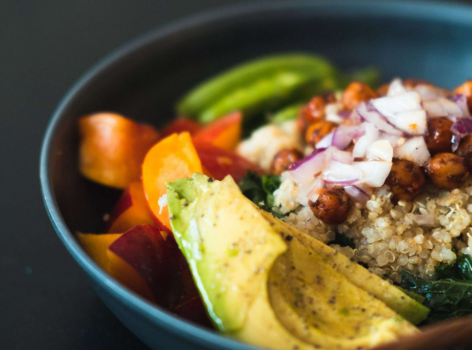
When you’re considering starting a family, your diet plays a crucial role in supporting fertility. Whether you’re naturally trying to conceive or undergoing fertility treatments, the right foods can improve your chances of success. Fertility refers to the ability to conceive, and it’s important for both men and women to focus on their nutrition to support reproductive health. While genetics do have an influence, lifestyle and dietary choices can significantly affect fertility.
In this blog, we’ll explore key nutrients, fertility-boosting foods for both men and women, and helpful diet tips to support your journey towards conception.
How Nutrition Affects Fertility
Numerous studies have shown that what you eat can impact your fertility. The Mediterranean diet, which includes an abundance of plant-based foods, healthy fats, whole grains, and proteins, consistently ranks as one of the best for reproductive health. Reducing your intake of trans fats, sugars, alcohol, and caffeine can also significantly improve your chances of conception.
Infertility can stem from various factors, including chronic inflammation and oxidative stress. When these are prolonged, they can affect fertility. Including anti-inflammatory foods and antioxidants in your diet can help reduce these issues, creating a better environment for conception. Both men and women can benefit from these dietary changes, as inflammation and oxidative stress negatively impact sperm and egg quality.
For women, a common cause of infertility is not ovulating regularly, which is often due to conditions like polycystic ovary syndrome (PCOS). Certain foods can support hormonal balance and improve the chances of ovulation. Additionally, improving sperm quality through diet is equally important for men, as oxidative stress and poor lifestyle choices can damage sperm.
Maintaining a healthy weight is also crucial. Both underweight and obesity can affect fertility, with excess fat contributing to insulin resistance and inflammation. Achieving a balanced weight can positively impact both ovulation in women and sperm quality in men.
Top 20 Fertility-Boosting Foods
- Full Fat Dairy
Recent studies show that full-fat dairy, like milk and yogurt, may reduce infertility risks by up to 70%. It has been linked to improved ovulation and hormone regulation, especially when compared to low-fat dairy options. - Eggs
Eggs are packed with essential nutrients like protein, B12, and choline, which support reproductive health. They also help protect against neural tube defects in developing babies. - Avocados
Rich in Vitamin E, healthy fats, and folate, avocados support ovulation and reproductive health. They also provide magnesium and potassium, which are essential for hormonal balance. - Citrus Fruits
Lemons, oranges, and grapefruits are high in antioxidants like Vitamin C, which helps with egg quality and sperm motility. Their polyamine content also supports fertility by enhancing cell division. - Oily Fish
Salmon, sardines, and mackerel are rich in omega-3 fatty acids, which reduce inflammation and promote healthy sperm and egg production. They’re essential for reproductive hormone production. - Beans
Beans are a great source of plant-based protein and fiber, both of which support ovulation and hormonal balance. They’re also a good source of folic acid, which is vital for reproductive health. - Lentils
Lentils contain spermidine, a polyamine linked to improved fertility, and are also rich in iron, which is crucial for ovulation and maintaining a healthy pregnancy. - Whole Grains
Whole grains like quinoa, brown rice, and oats are rich in fiber and antioxidants. They provide slow-releasing carbohydrates that help maintain energy levels throughout the day, supporting healthy ovulation. - Extra Virgin Olive Oil
Olive oil is a key component of the Mediterranean diet. It contains healthy fats, antioxidants, and omega-3 fatty acids that support reproductive health in both men and women. - Greek Yogurt
Greek yogurt is high in protein, calcium, and probiotics, which are essential for digestive health and fertility. It can also support a healthy weight, which is important for conception. - Liver
Rich in iron, folate, and Vitamin A, liver is a powerful fertility food. It’s particularly beneficial for women who experience heavy periods or those with low iron levels. - Oysters
Oysters are a fantastic source of zinc, which is essential for sperm production in men and overall reproductive health in women. They’re also high in iron and Vitamin B12. - Cinnamon
Cinnamon has been shown to improve insulin sensitivity, making it especially beneficial for women with PCOS. It may also help balance reproductive hormones and regulate menstrual cycles. - Sunflower Seeds
High in Vitamin E, selenium, and omega-3 fatty acids, sunflower seeds support hormone production and egg quality. They also help with implantation and fertility outcomes. - Spinach and Dark Leafy Greens
Spinach, kale, and other dark leafy greens are rich in folate, iron, and antioxidants, all of which are essential for healthy egg development and hormonal balance. - Walnuts
Rich in omega-3 fatty acids, walnuts are particularly good for male fertility. Studies show that eating walnuts can improve sperm quality and motility. - Berries
Berries like blueberries, strawberries, and raspberries are rich in antioxidants, which help protect cells from oxidative damage. They also promote a healthy immune system and support fertility. - Tomatoes
Tomatoes are high in Vitamin A and C, as well as lycopene, which is linked to improved sperm quality. Cooking tomatoes enhances their lycopene content, making them even more beneficial for fertility. - Sweet Potatoes
Sweet potatoes are a great source of beta-carotene, which the body converts to Vitamin A, essential for cell division and egg maturation. They also provide fiber and energy. - Ginger
Ginger is known for its anti-inflammatory properties and can be particularly beneficial for women with PCOS and endometriosis. It may also help improve sperm quality and concentration.
Drinks That Boost Fertility
- Green Tea
Green tea is rich in polyphenols, which have antioxidant properties. Drinking it regularly has been linked to improved sperm motility and egg quality. - Milk
If you’re not getting enough dairy, milk can be a good source of fertility-supporting nutrients like calcium and Vitamin D. - Fertility-Boosting Smoothies
Smoothies are an excellent way to pack in fertility-boosting nutrients. Start with a base of oats or banana, add berries, nuts, seeds, and a dairy or non-dairy milk to boost your fertility diet.
Foods to Avoid for Better Fertility
Certain foods can reduce fertility or disrupt hormonal balance. These include:
- Alcohol
Alcohol can reduce sperm count and quality in men, and disrupt menstrual cycles and ovulation in women. It’s best to limit or eliminate alcohol when trying to conceive. - Trans Fats
Trans fats, found in fried foods and processed snacks, have been linked to ovulation problems and poor sperm quality. - Caffeine
Excessive caffeine intake may lead to longer conception times and increase the risk of miscarriage. Moderation is key. - Red and Processed Meats
These are high in trans fats and saturated fats, which can reduce fertility and increase inflammation.
Fertility Diet for Women
For women, the top nutrients to focus on are:
- Omega-3 fatty acids
- Plant-based proteins
- Iron
- Zinc
- Folate
- Vitamins A, E, and C
Fertility Diet for Men
For men, the key nutrients include:
- Zinc
- Selenium
- Coenzyme Q10
- Vitamin C
- L-Carnitine
- Omega-3 fatty acids
Conclusion
By incorporating these fertility-boosting foods into your daily diet, you can support your reproductive health and increase your chances of conception. Along with a balanced diet, maintaining a healthy weight, reducing stress, and avoiding harmful substances like alcohol and tobacco are all essential steps in improving fertility. If you’re uncertain about your specific nutritional needs, consider consulting a fertility specialist or dietitian for personalized advice.










